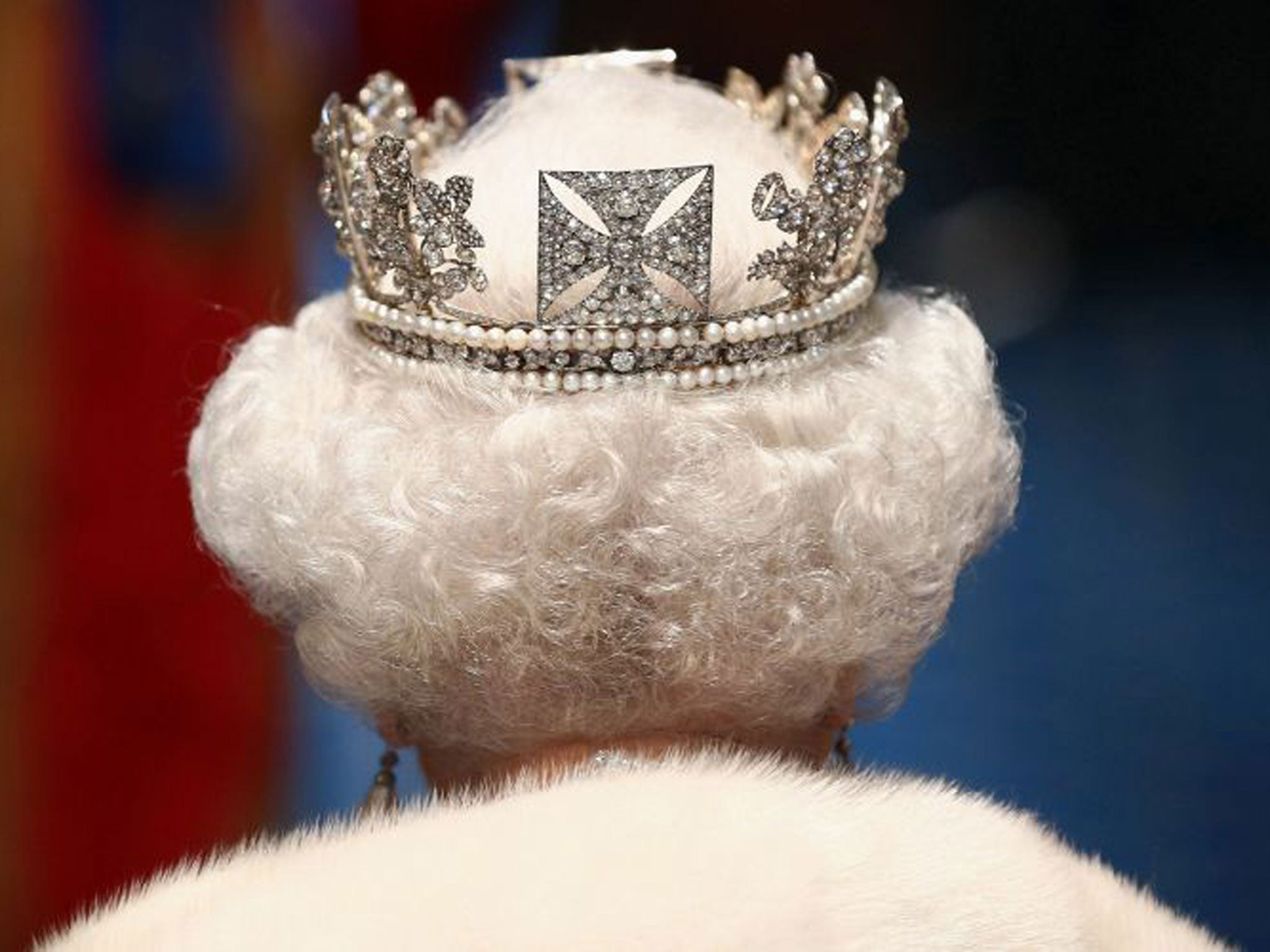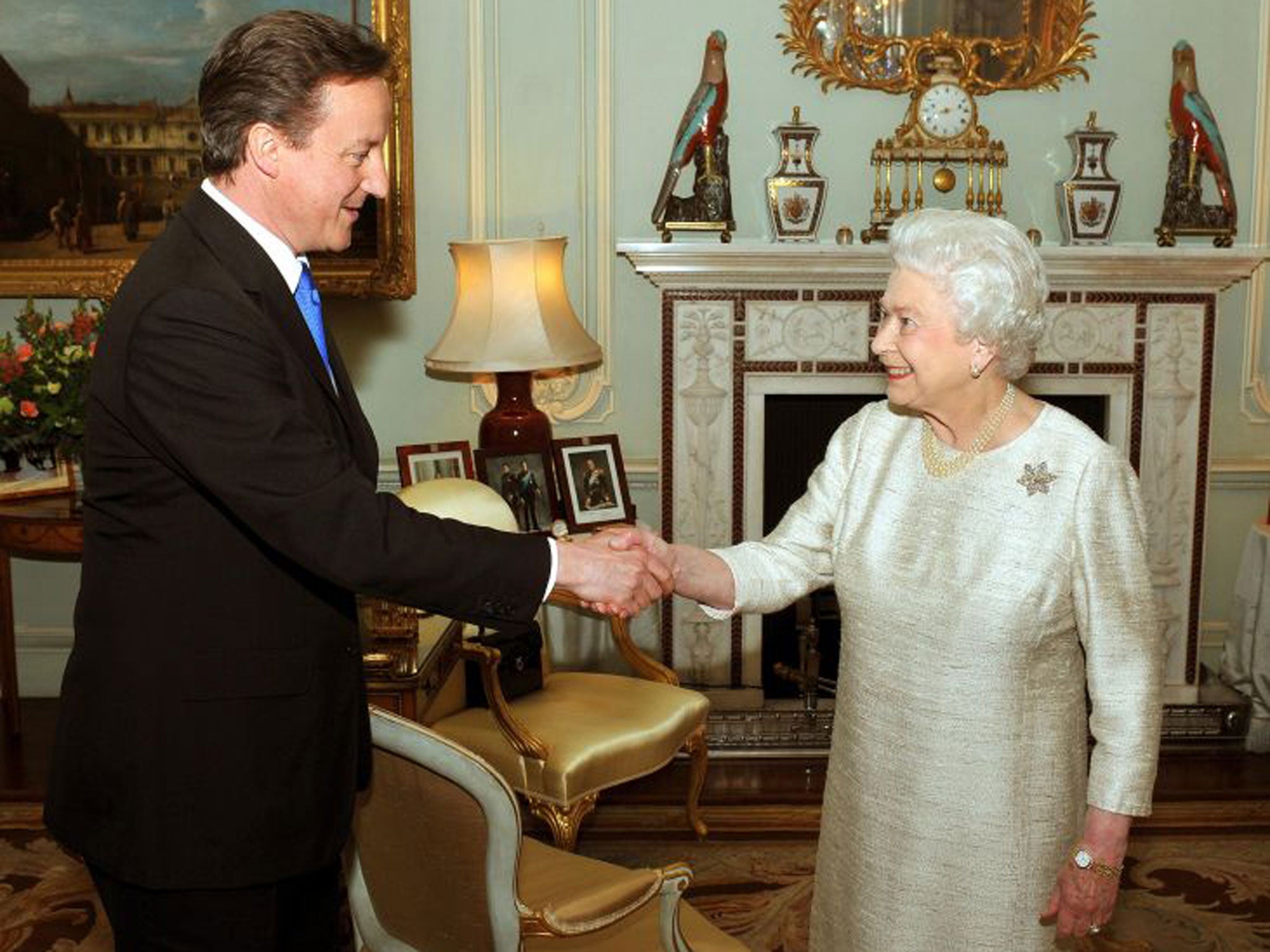Constitutional monarchy: Real liberals should love the Royal Family too
Pageantry and continuity, but with no real power – you don’t have to be conservative to see that as a good thing

Your support helps us to tell the story
From reproductive rights to climate change to Big Tech, The Independent is on the ground when the story is developing. Whether it's investigating the financials of Elon Musk's pro-Trump PAC or producing our latest documentary, 'The A Word', which shines a light on the American women fighting for reproductive rights, we know how important it is to parse out the facts from the messaging.
At such a critical moment in US history, we need reporters on the ground. Your donation allows us to keep sending journalists to speak to both sides of the story.
The Independent is trusted by Americans across the entire political spectrum. And unlike many other quality news outlets, we choose not to lock Americans out of our reporting and analysis with paywalls. We believe quality journalism should be available to everyone, paid for by those who can afford it.
Your support makes all the difference.October 1964. Tony Benn, along with other cabinet ministers in Harold Wilson’s newly elected Labour government, goes to the Palace to kiss hands on being appointed to the Privy Council.
Afterwards, he writes in his diary: “We then went up to the Queen one after another, kneeling and picking up her hand and kissing it, and then bowing. I did the most miniature bow ever seen... I left the Palace boiling with indignation and feeling that this was an attempt to impose tribal magic and personal loyalty on people whose real duty was only to their electors.”
There, passionately put, is the left-wing view of monarchy: it is bad because it is old, it has no serious political function, and it involves believing, or pretending, that one person is innately superior to another.
On the other side, there is the equally familiar conservative argument for monarchy, which is about continuity. The birth of Prince George was a small milestone for me, and, I expect, for quite a few people of my age. He is the first future monarch whom I know for sure I shall not live to see on the throne. That was a curiously comforting thought. The monarchy stretches a thousand years into the past, and will go on into an indefinite future after I am dead, symbolising the nation and humanising the state. I suppose some people find that a stifling idea; to me, it is reassuring.
But I am glad to say that such atavistic reasons to be happy as a subject of the Queen are reinforced by a perfectly respectable liberal argument for constitutional monarchy. If you want to understand it, watch Triumph of the Will. Leni Riefenstahl’s superb documentary film of the 1934 Nuremberg rally is almost enough to make a Nazi of you. The arrival of the Führer by air, like a god descending from Valhalla, the marching columns, the torchlit processions, the passionate speeches, the stark ceremonies of sacrifice and dedication. A whole nation marching in step toward its destiny, behind its beloved and all-powerful leader. Heady and dangerous stuff. But in the end there is something tawdry about it all that turns the stomach – even before you remember what it led to.
Compare that with the supreme ritual of British constitutional monarchy, the State Opening of Parliament. The Queen arrives at the Palace of Westminster escorted by cavalry with drawn swords – the coercive power of the state at her command. She sends the Gentleman Usher of the Black Rod to summon the representatives of the people into her presence. But what is this? The doors of the Commons chamber are slammed in his face, and he has to knock for admission. As Charles I found when he tried to arrest the Five Members, the arbitrary power of the state cannot coerce the elected representatives of the nation.
None the less, the MPs obey the royal summons. Led by their Speaker, they proceed to the Lords chamber, where they stand at the bar of the House in their ordinary business clothes, while the Queen, wearing her crown, and surrounded by a glittering array of robed peers, judges and bishops (the power of the state at her command again), intones a speech setting out the policy of “my government”. The speech, of course, has been written for her by the very same drab, besuited government ministers who stand before her at the back of the hall.
Thus do we, the nation, reserve our acclamations of “Sieg heil!” – such as they are – for a person with no power at all, while reserving the right to be as rude as we please about those who actually rule the country and wield the power of the state. That is a way to preserve your liberty. It is not the only possible way, but it is the British way, and it has served us well. Think deeply and often before throwing it away.
Republicans deride the State Opening as a silly Ruritanian pantomime. It is certainly a piece of theatre; and, for liberal monarchists, that is the whole point. The value of constitutional monarchy lies in separating the theatre of power from the reality of power. It is at the same time dignified and daft, impressive and touching. Suspend disbelief, and you will find that the magic works. Most of what the Queen does is indeed just magic, or a kind of cosy patriotic pageant – visiting this, opening that, attending garden parties, delivering a televised message to the Commonwealth at Christmas. You may like or dislike this performance, but it is difficult to criticise on grounds of principle.
In the 1860s, Walter Bagehot, the great liberal journalist, classified the monarchy as one of the “dignified” parts of the constitution, whose function was to look impressive, as opposed to the “efficient” parts, such as the House of Commons, which did the actual work. The constitutional functions that the Queen has to perform are few: issuing writs for the election of a new parliament, presiding at the State Opening, receiving foreign ambassadors, and appointing the Prime Minister; that just about covers it.
The Queen also has a weekly meeting with the Prime Minister, at which she presumably exercises her constitutional rights “to be informed, to encourage and to warn” (Bagehot again) but nobody knows what they talk about.
The Queen’s formal assent to parliamentary bills is pronounced in the Lords chamber, but the last occasion when Royal Assent was refused was in the 18th century, so the Royal Assent can be dismissed as a mere ritual.
The appointing of the Prime Minister is, of course, by far the most important of those functions, and it arouses the deep suspicions of some republicans, but it is invariably a formality. The results of general elections are usually clear-cut; leaving only one person who can command a majority in the Commons. Even on an occasion when that was not so, in the negotiations that produced the present Coalition Government, the politicians were determined to settle it among themselves and keep the Crown out of party politics.

It is possible to construct a scenario in which that process might break down. The Prime Minister’s party is the biggest in the new House, but the third largest party holds the balance of power. Coalition negotiations between the Prime Minister and the third party break down, and the third party does a deal with the second largest party, which was in opposition before the election. The Prime Minister goes to the Palace and asks for a dissolution of Parliament and a fresh election. Does the monarch accept, as is the invariable rule, the ministerial advice, even when it amounts to overturning, for party advantage, the verdict of the ballot box? Or should the monarch refuse, dismiss the Prime Minister, and ask the leader of the Opposition to form an administration? Well, who knows? But such a breakdown of parliamentary government, causing real power to revert temporarily to the Crown, is deeply unlikely. It would be good to be able to argue that in the event of any fundamental threat to freedom, such as a military or political coup, the monarch would act, if necessary, without the advice of ministers, either to order the troops back to barracks or to dissolve Parliament and call a general election. In such circumstances, a monarch who stands above politics and commands the allegiance of the armed forces is certainly a potential safeguard, but not necessarily a reliable one. The score in Europe since the Second World War is 1-1. Juan Carlos of Spain quelled a coup: Constantine of Greece went along with one.
Whether republican presidents would have done better or worse is anyone’s guess, but here is the good bit: Constantine, who failed democracy, lost his throne at the end, whereas Juan Carlos, who saved it, still occupies his. That record, one may hope, might stiffen the backbone of our own Royal Family, if push ever came to shove. Which God forbid, though in a country where elected politicians are as reviled, and soldiers as revered, as they are in Britain today, you can’t suppress a twinge of doubt about how secure are the foundations of freedom.
At bottom, your attitude to monarchy is a matter of temperament. Some people are outraged by the idea of giving a bow or a curtsey to anyone who hasn’t “deserved” it. Me, I would rather owe my allegiance to a person notionally put in authority over me by God – no mortal’s dignity can be compromised by submitting to the will of God – and then be left to my own devices by the state, than be roped into the amorphous mass of the citizens of a republic. I have always hated crowds – as much as I have loved the theatre of power, when it is sober, grand and slightly absurd.
A colleague remarked to me the other day that the State Opening of Parliament doesn’t hit the spot for him, but whenever a US president is inaugurated, his heart lifts with admiration for this ceremony in honour of the office and the man placed there by the will of the people.
Well, I submit that for true liberals, who care most of all for the liberty of the individual citizen, the “will of the people” is a will o’ the wisp, frequently invoked by crooks and tyrants. We do not like triumphs of the will, even that of the people. The chief value of democracy is not in “getting things done” – that is the socialist way – but in preventing the abuse of power by those in charge. And the chief value of monarchs is that they are there not by their own will or anybody else’s but by pure chance. The important thing is not to confuse the person and the office; the Queen is not a god, nor does she “deserve” the privileges of her office. But that office is ancient, colourful and modestly useful, and we’d be crazy to get rid of it.
Join our commenting forum
Join thought-provoking conversations, follow other Independent readers and see their replies
Comments